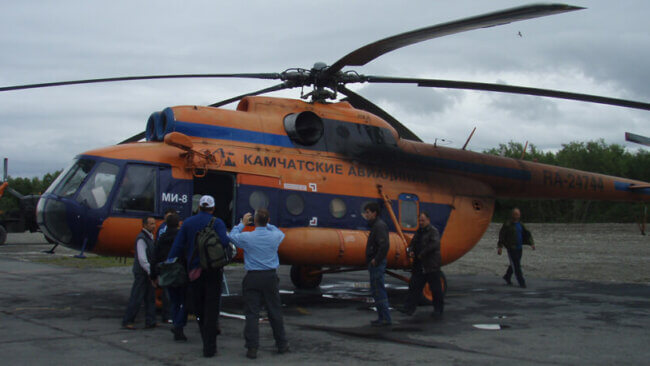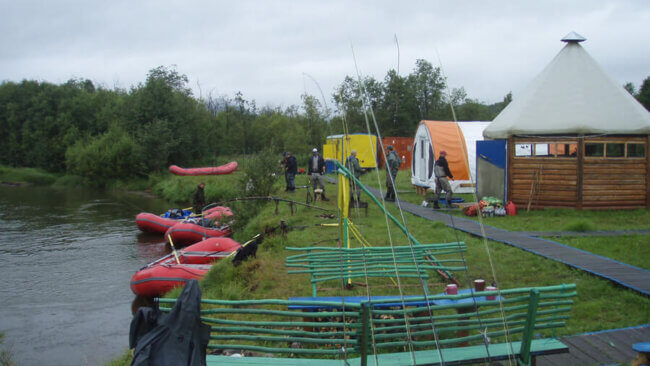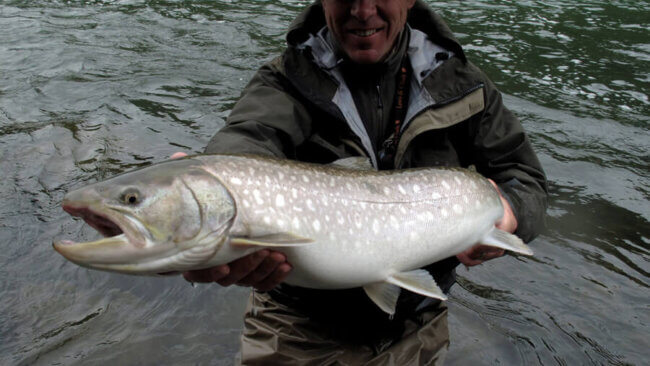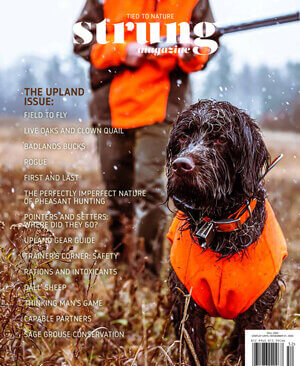I awoke to the loud voice of a lady belting out commands in Russian over a shaky intercom. My eyes were directed straight up at the ceiling, and the back of my head was resting on the seat beside me. For the first time I noticed that the “no smoking” signs situated next to the air conditioning knob had been hand-painted—a sure sign that this airplane was in use sometime prior to the mid-1970s, when smoking on airplanes was normal. At least I was alive. Minutes prior, I was enveloped by a horribly real nightmare about this 50-year-old tin box with Vladivostok Airlines painted on the side plummeting into the icy 60-foot swells of the Bering Sea. We had arrived in Petropavlovsk, the easternmost city in the world, where nearly 200,000 people live, nestled right smack in the wilds of the Kamchatka Peninsula. But I was not here to sightsee, although the drug-ridden slums, extreme crime rate, and forbidding military presence do have their attractions.
Six months prior, I took an old friend of my father’s fishing on our home river. Pete Soverel, an old gunboat captain on Vietnam’s Mekong Delta, was now running Wild Salmon Rivers, an American nonprofit outfit that takes anglers into remote rivers in Kamchatka for an unparalleled week of fishing and gathering data for scientific study. He put me behind the wheel of his black Mercedes, and we navigated the winding highway, taking in an ocean view speckled with countless green islands that cluster along the coastline. We talked all during the drive, Pete regaling me with stories of steelhead fishing in Russia and encounters with giant grizzlies. In turn, I told my stories of running whitewater trips in northern British Columbia and Alaska.
Alas, the river was too high to fish effectively with a fly rod, but we cast our two-handed rods for an hour and came up with a couple of nice-sized bull trout. Later that day he talked to me about heading his operation in Russia, running seven-day trips in a flotilla of rafts, on the Zhupanova River. Giant, mouse-devouring rainbow trout? I jumped at the opportunity and secured my spot. As a director of angling at age 21, I began to dream about the wilderness and fantasize about the giant fish I was bound to encounter.
Usually, when traveling to an exotic destination, when you exit the aircraft it’s like you’re stepping through a meniscus into a warm, sticky bubble. As you walk down metal stairs that lead you onto the steaming tarmac, you breathe in noticeably different air. Thick air. Air heavy with the scents of a tropical paradise and a Third World country that blend together until your mind has had time to differentiate between them. First the jungle, the trees, and the exotic flower scents, followed by the smell of the ocean. And then the asphalt. Then, just as you hear the first car horn blow in the distance, the exhaust fumes and oil. I expected to experience something along those lines.
Arriving in eastern Russia, I walked down metal stairs onto the tarmac, but into air so familiar it seemed as though I might have been flying around in circles for 14 hours, while everything at the Ted Stevens Airport in Anchorage, Alaska was quickly remodeled into a set for a Cold War movie. I expected exotic smells as I stepped out, but alas, encountered no strange scents for the brain to absorb and the mind to distinguish. Just clean, crisp, cool air, a slight breeze, and the smell of pines. It’s a lot like back home.
As I began the march off the stairs and onto the bus waiting beside the plane, everything changed. All my homey associations evaporated in the Russian sun gleaming off the AK-47s the military personnel who are guarding our bus were armed with. Nobody told us anything. Nobody knew anything. It seemed there wasn’t an official for miles who spoke English, and we were locked on a bus that looked like it was imported off the streets of Mumbai and filled with scared North Americans. Their faces said: “I am out of my comfort zone, and I am now wondering why I let John talk me into coming to this God-forsaken country.” Sweat poured down some faces. Many of the passengers were overweight, and all were over 45. All were men, fishing buddies who had come to confirm the legends of Kamchatka, to catch a trout like the one in that picture they saw in that email from a friend.
There were no bathrooms on the stationary bus and no driver to let us off, so the murmurs began. The men muttered under their breath, letting everyone know they were irritated. “Why aren’t we moving? Where is our driver?” They were barely heard over the loud dashboard radio that had been left on, obviously a Petropavlovsk station, featuring electronic music that you would expect to find in a Moscow club in the 1990s. The little purple curtains lining the tops of the windows were just for decoration—they didn’t have drawstrings. They covered only the upper eighth of the glass, and fit in well with the bus’s brightly colored décor.
The walls were neon yellow, and the ceiling was covered with advertisements, mostly in Russian but a few small ones in English, half of them misspelled. As the hours went by, I had time to sit and contemplate the history of the strange bus. I could picture an old Russian peasant woman in her babushka, sitting in the front of the bus, returning from the morning market, peering out the window. She pondered the quality of the beets she’d purchased, and hoped her husband would enjoy tonight’s borscht. That night, two young, well-dressed Russians, drunk on homemade vodka, sitting across the aisle from each other, were conversing loudly and then, as if being summoned, they stood up and began dancing as “Moscow Never Sleeps” came on the old radio. They hung onto the pole as they kicked their Italian leather shoes to the beat, resting a hand, palm flat, on the thigh of their black pinstripe dress pants. Others on the bus watched, some smiling and others turning their heads to avoid eye contact.
The two drunk Russians evaporated, along with the onlookers, as the bus door opened and an armed military woman climbed aboard. I was brought back to reality, to the situation at hand. Never having been that close to an authentic, loaded machine gun (let alone a woman carrying one), I wondered if this was the end: a busload of tourists gunned down in a case of mistaken identity. I took a look around, and saw that all the old American guys were thinking the exact same thing.
“Whar iz miztar Gole?” the woman asked. Nobody answered. “Iz thar a Miztar Gole? Gol? Col?”
“Cole? I’m Anthony Cole,” a frightened passenger answered. There was sweat dripping down his forehead. He was a man in his late 40s, still good-looking and tanned. From Florida. West Palm, if I had to guess.
“Ah! You are Mizter Cole!” she replied with a smile.
By this time, every eye on the bus was directed at either this Russian woman or poor Anthony. Everyone but Anthony was thankful they were anonymous to the armed lady, and wondering what she wanted with this guy. Maybe he was a smuggler, or worse, a terrorist. “I believe thiz iz yarz, Mizter Cole.” She handed him an envelope.
A look of relief swept across his face as he thanked her. She smiled, and the tension on the bus was suddenly broken. Realizing that she had just returned his passport and cash that he had forgotten on the plane, everyone sighed and smiled. She looked around at the relieved faces and laughed out loud, and a few others joined her, realizing they may have just been taken by a bit of Russian humor.
She turned around to exit, and someone asked, “Hey, how long do we have to wait here?”
Before stepping down out of the bus, she turned and said “Sarry, airport clozed. More wait.” And the bus was locked again. Another hour went by, and we were ushered out of the bus by another woman dressed in camouflage, but without a visible weapon. We walked from the bus into the airport as a solid stream of short Asian people—Korean if I had to guess—flooded out of the airport and toward a bus of their own. The North Americans lined up, passports in hand, ready to be done with the whole ordeal. When it was your turn to step up to the counter, a couple questions were asked in Russian that you couldn’t possibly understand, a couple confused glances were exchanged, and your passport was stamped. Then you were moved along through the doors into the free and fresh Russian air. Now there was a new scent in the air: freedom. Russian air never smelled so much like home.
A loud, almost electrical charge started humming through the heads of those crammed like sardines into the cargo hold of the Russian M-8 army helicopter. The blades started to turn. We all shifted nervously, whether we were buckled into a steel seat or lying uncomfortably on the luggage and gear that filled the hold. We could see the pilot and engineer through the open doorway into the cockpit. They were flipping switches and exchanging anecdotes in Russian, letting out a few laughs in the process. The helicopter shook as the blades pick up speed, and suddenly the electrical humming joined in harmony with a loud swooshing sound. It felt like the helicopter would leave the ground any second, or bolts would come loose and blades fly off the hinges, reducing this endeavor to a pile of metal scrap.
I look around, and all the passengers were unconsciously grabbing onto the closest piece of solid material, their knuckles showing white. I consciously loosened my grip and calmed myself, remembering that every flight this helicopter made was accompanied by the man who is responsible for the engine and all moving parts. The mechanic/engineer flew with it everywhere it went, so his life was also in jeopardy if he didn’t see to it that all was in perfect working order. I relaxed.
I looked out the steel-rimmed, round glass portholes at the helicopter base outside.
The air was being whipped around the chopper, and with it any leaves or other debris within a small radius. I didn’t know that this was the last time I would see civilization for a long time. The whipping of air outside intensified, as though I were looking through disturbed water. The loud cry of the helicopter rose in pitch to a crescendo of noise, and then we bounced and swayed a bit as the wheels left the ground. My heart went up into my throat as we continued our ascent, and suddenly we got a bird’s-eye view of the helicopter base. The mountains to the east rose up like sentinels, guarding an ancient land. It was loud inside the chopper, and all eight passengers (some of them our clients, guides, and cooking staff) were staring through the portholes toward our destination somewhere in the mountains ahead.
One of the Russians noticed how interested I was in the scenery. He reached over and grasped the porthole fittings, opening it to let in a burst of churned air and free my eyes from the scratched and dirty glass separating me from the scene outside. He beamed at me, the crow’s feet on his leathery, element-battered skin stretching out from behind the edges of his sunglasses. I nodded my thanks at him, not attempting to speak over the noise. I was really examining the details of the land below us. Dark evergreen forest carpeted the mountains, leaving room only for thick, emerald-green deciduous trees in the arroyos that followed the mountain creases down onto the valley floor. A perfect environment for grouse, I thought. And bears.
Twenty-five minutes into the trip, we were high above creeks that joined rivers at the feet of these behemoth mountains, some with bald cone tops with spewing thick white smoke from their summits. Volcanoes. A few of the other guys were snapping pictures with their waterproof cameras. It seemed we had passed through some invisible gates, into a lost world.
As soon as the blades powered down, the back of the helicopter opened up and we began unloading luggage and rafting gear production-line style. When we had a nice mound of bags, rod tubes, and equipment, everyone hit the dirt and held on tight. The helicopter created a windstorm as she left the ground. We shut our eyes until the wind died.
I stuck out my hand to the Russian man beside me and said: “Min ya sa voot Alexei.”
His blue eyes squinted, stretching his sunburnt cheeks. The smoke from the cigarette dangling from his lips climbed his face, irritating his eyes. He grabbed my hand. “My name is Dima,” he replied. “I am number one guide, here,” he said.
“You speak English?” I asked.
“Yes. Not so good as my wife. But yeah.” A tiny smile pulled at the corner of his mouth. “This is also Dima,” he said, pointing to a darker-skinned man beside him. “I am Dima One, and he is Dima Two,” he relayed with all seriousness.
I laughed. “Short for Dmitri?” I inquired.
“Yes.”
“Well, my middle name is Dmitri,” I told him, “So I guess I am Dima Three, then.”
“No. You are Alexei. Here you are Alyosha. I will call you Yosha,” said Dima One.
I was almost out of breath and ready to keel over. The 16-foot red, Russian raft was only half inflated, and I’d been pumping for what seemed an eternity. By the way Dima was looking at me, I could tell that underneath my white Scottish/Ukrainian skin, the capillaries were filled with blood and glowing red like a tomato. Staring at his sunburnt face intensified the state I was in. He was mostly bald, with short blond hair around the rim of his crown. His blonde hair, blue eyes, strong physique, and cool demeanor had convinced a group of repeat clients to brand him “The Brad Pitt of the Zhupanova.” He was cut and dried, allowed for no bullshit, and was extremely hardworking. Not only did he spend the summer months in this remote valley during the fishing season, but Dima was also a trapper. He lived in the wilderness during the winter too, when the hunting was good.
Dima said that at that time of year, 14 feet of snow covered the ground, and you had to dig for hours to find the roofs of the cabins. He was the definition of a “man’s man.” He was also pumping up one of the four rafts, but his muscular physique allowed him to keep a strong, fast pace.
“’aving problem?” he asked jokingly.
“No,” I lied, and continued pumping.
My eyes drift from my ever so slowly inflating raft to Dima, watching his technique and his intense focus, silently watching in admiration. Dima always seems to look angry. His cobalt-blue eyes send piercing gazes from his large, balding, round head. I wonder about all his angling experience and knowledge from years of intimate study and interaction with this ancient ecosystem. I wonder because I know what is involved in deciphering the hidden secrets that remote rivers share only with those who spend every possible moment on the water. I know the trials and tribulations dealt to a rafting guide by the river during initial years of study. And I have hand-inflated many a raft. I’m only 21 years old, but started running whitewater trips in northern British Columbia and Alaska by the time I was 16. I am confident in myself and my abilities, but I wonder how the older Russian guides will deal with having a much younger foreign kid as director of angling. Dima greeted me with a smile and a handshake when I arrived, but I sensed a slight undertone of something, possibly resentment. I had encountered it the year before (as head guide at a lodge in BC) And I was also the youngest in the crew.
Our rafts ever so slowly rose from heaps of wrinkled rubber sheeting and started to take form. The tubes became slightly visible, then distinct, and finally after another 150 pumps, hard as biceps. Custom-welded heavy steel frames with wood plank seats were strapped down to the inflated boats, and our personal anchor systems put in place. Mine looked like a heavy iron engine part, and I secured it tightly to a length of rope. Our first camp was at a high elevation, in what seemed to be a hidden valley overrun with wild blueberry bushes. Our plywood cabins, equipped with wood-burning stoves were connected by a raised boardwalk that kept everything elevated off the grass. The river gradient here was ultra-low, meandering through wide elbow turns complete with clay cutbanks and fields of sedge grass.
This evening we would fish. I helped the guests assemble their rods and set up their gear: floating lines and mouse patterns were the first choices of most of the eager fishermen. We left the second guide, Dima Two, to final preparations and overseeing the cooks making dinner. Dima, the six guests, and I set out into the chest-high blueberry fields, following bear trails to a mountain tributary a half mile toward a cone-shaped hill in the distance.
The land was windswept, fragrant tundra complete with wildflowers and—at this time of year—thick mud. We were walking single file, and our leader suddenly took a right turn and detours slightly to avoid a large, hairy back feeding ravenously on berries. As we made our way around the roadblock, the bear poked his large nose into the air to let us know he was aware of our presence. Using my fingers like a sieve, I stripped a branch of its berries as I passed by. They were small, blue, and incredibly flavorful.
We started the walk back three hours, two miles, and four bears later, everyone fished out. With a Kalashnikov strapped to my back I went over the scenes in my mind: a gravelly tributary wide enough for a Spey rod and too shallow for a sinking line. Clear, tea-tinted water and small rocks. Rainbows no smaller than 16 inches thrashing the surface on the take and leaping high out of the river during runs. Reels screaming and fishermen trying to avoid bears while trying not to lose their first Russian prizes. The largest landed was 24 inches.
The bushes in front of me shook, and I stopped dead in my tracks. I swung the machine gun around and rested my finger on the trigger. The bushes farther away were now shaking, and it was obvious the animal had taken off in the other direction. My adrenaline pumping and my eyes like moons, I forgot all about the recent excursion to the river and remained ultra-alert for the remainder of the hike back.
Subscribe to Strung Magazine
Rainbows of the Far East: Surviving Kamchatka – Part One
Bio: Alexei J.D. Boyanowsky was born and raised in Vancouver, British Columbia. He started his career on the river nestled inside the bib of his parents’ waders as they fished the rivers of British Columbia for winter steelhead. In his mid teens he had published his first magazine article and was a whitewater rafting guide running rivers in BC, Alberta, The Yukon and Alaska. Alexei became head-guide at a remote fishing lodge near Vancouver, BC and guided there throughout his late teens and twenties. He later moved on to guide and run fly-fishing operations on Vancouver Island and in Kamchatka, Eastern Russia. Following that he worked as a sport fishing captain dividing seasons between the Bahamas and Turks and Caicos Islands in winter and spring, and the West Coast of British Columbia and Southeast Alaska in the summer. At 33 Alexei is a registered and licensed guide in Nova Scotia, Canada where he resides and fishes the Atlantic provinces for salmon, trout, striped bass and sturgeon.
https://pnt.tta.mybluehost.me/tombstone-grayling/






